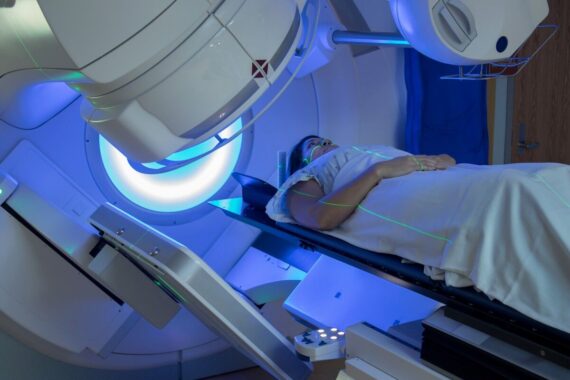A UK trial is being done of a ‘risk calculator’ overhaul referral pathways for patients suspected of having head and neck cancer.
Researchers from The Royal Marsden NHS Foundation Trust have developed the tool to enable GPs to provide more useful information about patient symptoms and aid referral decisions.
More than 100,000 patients from 52 centres who have been referred with suspected head and neck cancer will be asked to complete an electronic questionnaire about their symptoms, which will then be fed into the risk tool to provide clinicians with more individualised information from the start.
It is the largest randomised trial ever done for head and neck cancer and could completely redesign how referral pathways work, the research team said.
In England, more than 200,000 patients are referred with suspected head and neck cancer each year but 95% will be found to be cancer-free.
Around a third of patients referred with suspected head and neck cancer will undergo some form of investigation, but the information in the referral letter from the GP is often not enough to decide on the next steps, the research team said.
The hope is that the approach will speed up diagnosis of head and neck cancer and ensure high-risk patients have targeted investigations arranged much earlier after GP referral.
Study lead Professor Vinidh Paleri, consultant head and neck surgeon at The Royal Marsden NHS Foundation Trust, said: ‘Right now, when a patient with suspected head and neck cancer is referred to me, I have only limited information to make further decisions about their care until I meet them face to face.
‘Through this study, we hope to develop a new system to provide specialists with a much more complete picture of each patient’s story before they are seen in clinic. This could speed up the diagnosis for some, and ease anxiety for others who do not have the disease.’
He said the study would be a seven-year project which would also assess various technologies that could be useful in the referral process including an online tool for patients to tell the specialist about their symptoms.
‘We hope to transform the NHS head and neck cancer pathway and, if we find this system does improve outcomes for this patient group, it could be replicated across other tumour types too, potentially saving many lives.’
Separately, under a national rollout of ‘fast-track testing’, all GP teams across England will be able to ‘directly order CT scans, ultrasounds or brain MRIs’ for ‘patients with concerning symptoms’ who ‘fall outside the NICE guideline threshold for an urgent suspected cancer referral’, NHS England announced last month.
Pulse October survey
Take our July 2025 survey to potentially win £1.000 worth of tokens















Translation: We want GPs to do more of the consultant’s job for them.
How funny! The consultants want all information given to them in the referral? Maybe they want scan and blood results as well? Hey, why don’t we suggest treatment as well just for them to glance over it during their mortality meetings.
Own up your patients. Reorganise your services, make your work more efficient but not by work dumping.
You can get a scratchcard referral from the newsagent when you collect the tobacco. Or GUM clinic when it’s you know what time. How about that? Access speaks greater than words – innit.